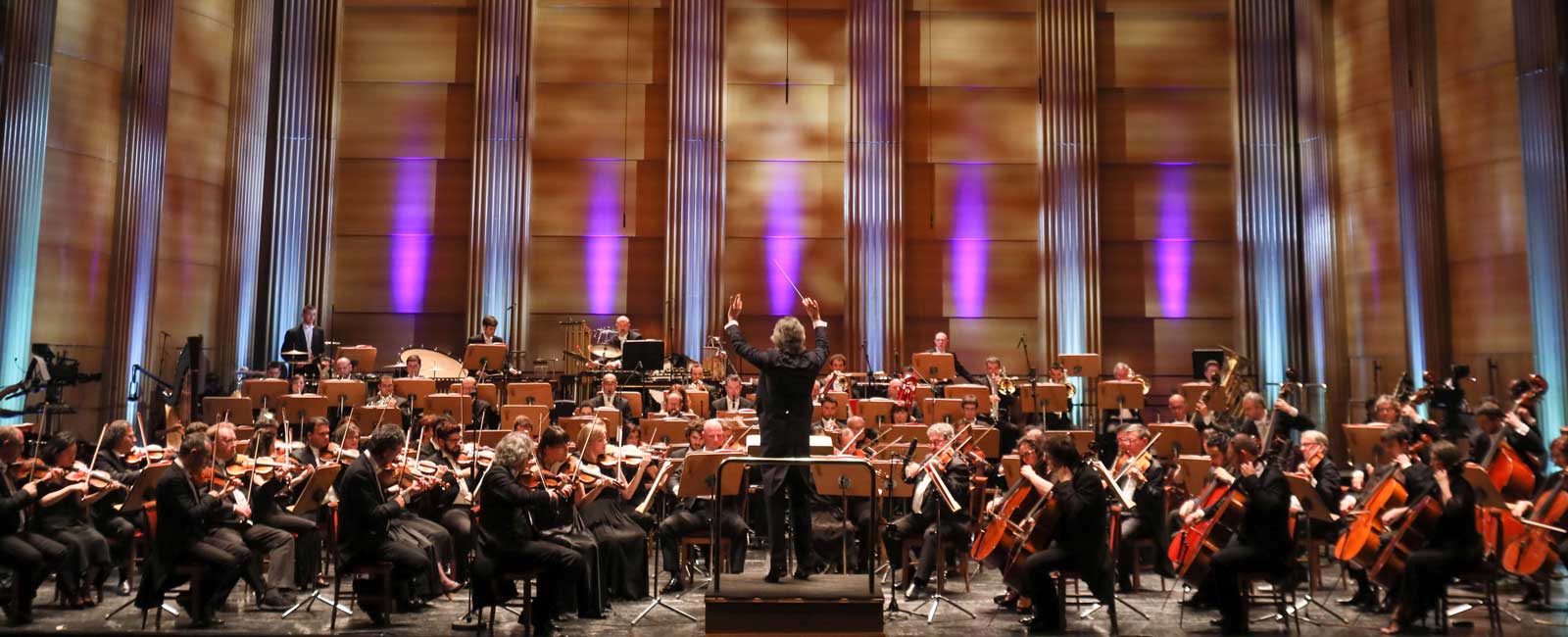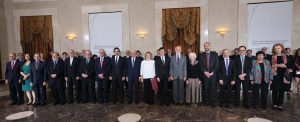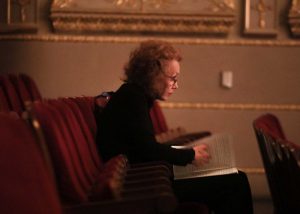
NEWS
The Teatro Real plays host to the 10th BBVA Foundation Frontiers of Knowledge Awards Gala Concert
On Tuesday 13 at 19:30, Madrid’s Teatro Real will play host to the 10th BBVA Foundation Frontiers of Knowledge Awards Gala Concert, a prelude to the formal ceremony that will take place the following day at 19:00 in the Marqués de Salamanca Palace, Madrid headquarters of the BBVA Foundation.
12 June, 2018
The concert is a tribute to the laureates in this 10th edition of the awards: Omar Yaghi in Basic Sciences; Shafi Goldwasser, Silvio Micali, Ronald L. Rivest and Adi Shamir in Information and Communication Technologies; James P. Allison in Biomedicine; William Nordhaus in Climate Change; Rosemary and Peter Grant in Ecology and Conservation Biology; Timothy Bresnahan, Ariel Pakes and Robert Porter in Economics, Finance and Management; Nubia Muñoz in Development Cooperation; and Kaija Saariaho in Contemporary Music. The music will be performed by the Orquesta Sinfónica de Madrid, the resident orchestra at the Teatro Real, led on this occasion by Pedro Halffter.
The program will open with the Overture to Fidelio, Ludwig van Beethoven’s only opera. Next will come Laterna Magica, by Kaija Saariaho, this year’s winner of the Frontiers Award in Contemporary Music, a composition exploring the shared ground between music and film, which draws its inspiration from Ingmar Bergman’s autobiography of the same name. After the interval, part two will begin with Gustav Mahler’s Symphony No. 1 in D major, a work that perfectly illustrates the depth and breadth of the German composer’s musical cosmos, and end with Tiento del primer tono y batalla imperial, by Cristóbal Halffter, the first composer to win the Frontiers of Knowledge Award.
Kaija Saariaho: treading new paths in electronic music and opera
“I have always loved music, for as long as I can remember. My mother told me that at night when I was going to sleep, I would start to imagine that I was hearing music. So much so that I couldn’t fall asleep and would ask her to ‘turn off the pillow.’ Music has always been in my mind and my imagination,” remarks Kaija Saariaho. Born in Finland, this country’s landscapes feature large in her musical writing. “My origins have certainly made me sensitive to nature – she continues – and that has everything to do with sound. When you walk through a forest after the rain, the acoustics are different because the leaves are wet, and that creates a special reverberation, to the extent that the forest becomes a church. The same thing happens with snow, which creates a very particular kind of silence. All these childhood experiences are undoubtedly present in my music.”
After training at Helsinki’s Sibelius Academy and in the town of Freiburg, where she coincided with composers Brian Ferneyhough and Klaus Huber, her interest in exploring the limits of instruments and their sonic possibilities led her to sign up for the International Summer Courses for New Music in the German town of Darmstadt, where she had her first live experience of spectral music. It was this encounter with spectralism that made her decide to continue her studies in Paris, at the Institut de Recherche et Coordination Acoustique/Musique, IRCAM. Spectralism gave the Finnish composer a tool with which to decompose sound into its component layers in order to facilitate deep listening. And through acoustic experimentation, she discovered that electronic synthesis allowed her to generate sounds not found in nature, but that combined with it perfectly. This was the start of what the jury granting her the Frontiers of Knowledge Award in Contemporary Music described as her “seamless interweaving of the worlds of acoustic music and technology.” But always as a means not an end, as she herself explains: “My aim – she says – “is for the electronic component of my music to become just one more part of the orchestration. When there is a sound I cannot capture with natural instruments, I turn to computers, using technology to complete my musical idea.”
Saariaho also studied as a performer, and has mastered several instruments, among them the organ. Composing music was not part of her plans, initially at least, but she soon became gripped by the compulsion to write. “I was always imagining music, but felt I lacked the necessary talent. Adoring music, I was never sure that mine was good enough. Until one day I realized that my life would have no meaning unless I did what I really loved, and that was when I became a composer.”
Her entry to opera was similarly hesitant, and it took her eight years to write her first: “I didn’t know who would be interested or if I could even do it,” she recalls. “But finally the means came together to make it possible.” What drew her to the genre was “the way we can see ourselves reflected in the characters,” and the opportunity it gave “to address the great issues that affect us all.” Her debut came in the year 2000 with L’amour de loin (Love from Afar), which deals with universal themes of love and death through the story of the 12th-century troubadour Jaufré Rudel.
The acclaim which greeted this collaborative venture with librettist Amin Maalouf and director Peter Sellars would be repeated some years later with Adriana Mater (2006) and Émilie (2010). Saariaho would also work with Sellars on Only the Sound Remains (2015), based on two Japanese Noh plays translated by Ezra Pound and Ernest Fenollosa, which will have its Spanish premiere in Madrid’s Teatro Real in October this year.



